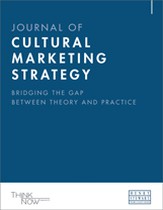Examining regional variations in effective posts on X (Twitter) during the COVID-19 pandemic
Abstract
Social media platforms play a significant role in disseminating information. The effectiveness of posts published on such platforms is often measured by the extent to which those posts are reshared — something that can be shaped by the regional social and cultural context. This study examines regional variations in effective posts (formerly tweets) published on X (formerly known as Twitter) during the initial phase of the COVID-19 pandemic, focusing on California’s two largest cities: Los Angeles and San Diego. By analysing a large dataset comprising the top 5,000 most reposted (formerly retweeted) posts from users in both cities, gathered between 17th March and 11th April, 2020, the research aims to identify key posters and content characteristics associated with higher repost rates. Employing techniques such as topic modelling and sentiment analysis, this study transforms unstructured text data into quantitative metrics in order to explore the relationship between content metrics and the number of reposts. The findings highlight the significant influence of local figures in shaping user engagement with shared posts spanning diverse topics and sentiments. These insights have significant implications for marketers, emphasising the importance of understanding local influencers, post topics and sentiment in geo-tagged posts. In regions with diverse populations, businesses can develop strategies to collaborate with local influencers and actively involve community leaders from various cultural backgrounds. By doing so, they facilitate the dissemination of trustworthy information and enhance engagement with culturally diverse audiences. Ultimately, this approach enables marketers to transform regional disparities into strategic advantages, fostering more effective communication and engagement on social media.
The full article is available to subscribers to the journal.
Author's Biography
Bo Liang is an assistant professor of marketing in the Department of Business at Nevada State University. She earned her PhD in marketing from the University of Utah, and an MBA with a minor in marketing from Clemson University. Dr Liang’s primary research interests are in the areas of consumer information search, learning and decision making in online environments. Specifically, she employs web analytics, content analysis, social network analysis, data visualisation and statistical modelling tools to analyse online consumer-generated datasets to better understand consumer learning and decision-making and their sociological underpinnings, generating insights to inform theory as well as practice in the area of marketing. Her work has appeared in such publications as Journal of Consumer Behavior, Journal of Medical Internet Research, Journal of Health Communication, International Journal of Nonprofit and Voluntary Sector Marketing and Journal of Web-based Communities.
Ye Wang is a graduate from the Missouri School of Journalism at University of Missouri — Columbia. She holds a PhD in journalism. Her research interests focus on interactivity and engagement on websites and social media. She has conducted research on engagement on branded social media sites, interactivity within online health communities, cause-related marketing, cross-cultural communication and advertising education. Her recent investigation explored opinion leadership and engagement with social norm campaigns on social media. Her work has appeared in such publications as Health Education & Behavior, Journal of Consumer Health on the Internet, International Journal of Nonprofit and Voluntary Sector Marketing, Howard Journal of Communication, International Journal of Advertising, Journalism and Mass Communication Educator, the International Journal of Strategic Communication and the International Journal of Internet Marketing and Advertising.
Ming-Hsiang Tsou Ming-Hsiang (Ming) Tsou is a professor in the Department of Geography, San Diego State University and Director of the Center for Human Dynamics in the Mobile Age. He holds a BS from National Taiwan University, an MA from the State University of New York at Buffalo, and a PhD from the University of Colorado at Boulder, all in geography. His research interests are in human dynamics, social media, Big Data, visualisation, internet mapping, web GIS, mobile GIS, cartography and K-12 GIS education. He is co-author of ‘Internet GIS’ (Wiley, 2003) and serves on the editorial boards of Annals of GIS, Cartography and GIScience and Professional Geographers. Tsou is a former Chair of the Association of American Geographers’ Cartographic Specialty Group (2007–2008) and Cyberinfrastructure Specialty Group (2012–2013), and a former co-chair of the NASA Earth Science Enterprise Data System Working Group’s Standard Process Group (2004–2007).
